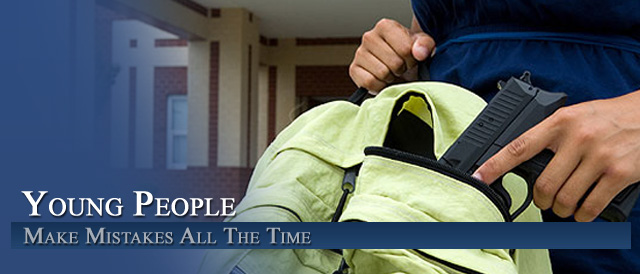
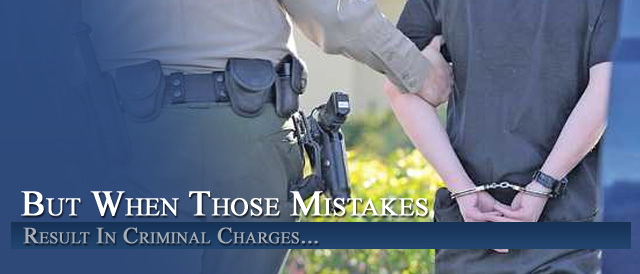
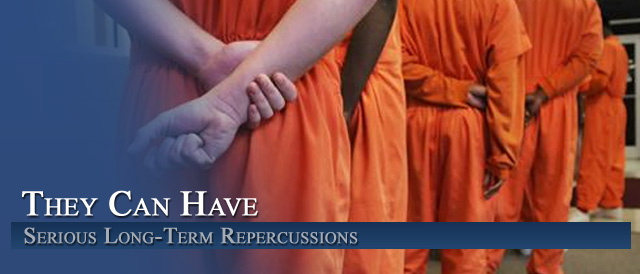
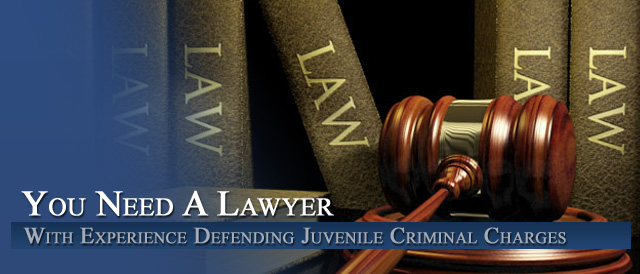
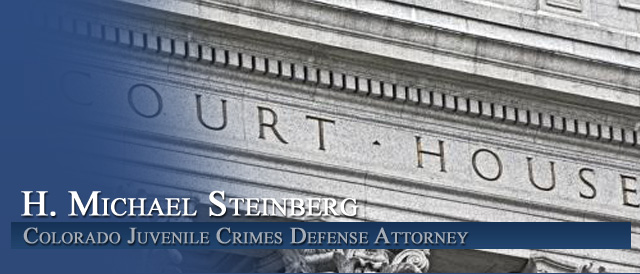
In Colorado – Can The Police Question My Child Without My Permission?
By H. Michael Steinberg Colorado Juvenile Crimes Criminal Defense Lawyer
In Colorado – Can The Police Question My Child Without My Permission? It may surprise you that the police can speak to your child without your presence in all situations – except one – that is when your child is under arrest and the police wish to question him. This article discusses a Colorado law that requires a parent or guardian be present before “custodial questioning” can take place.
While I have written on the interrogation of children before, a new 2016 case, (In Interests of A.L-C. 2016) raises the question of whether a parents’ mere presence at the questioning of their child is enough or whether that parents’ level of participation and motivation to “protect” their child during the questioning requires more than mere presence.
A Colorado Juvenile’s Right Against Self Incrimination Is Protected By Section 19-2-511 CRS
Colorado law provides a “statutory safeguard” for protecting a juvenile’s right against self-incrimination in a law identified as Section 19-2-511 CRS.
This law conditions the admissibility of a juvenile’s statements to law enforcement on a parent’s presence during his Miranda advisement if there is “custodial interrogation.”
Under Section 19-2-511(1), CRS a juvenile cannot validly waive that right unless accompanied by a parent, guardian, legal or physical custodian, or an attorney.
The most important part to this issue is found in Section 19-2-511(1) which states:
No statements or admissions of a juvenile . . . shall be admissible in evidence against such juvenile unless a parent . . . of the juvenile was present at such interrogation and the juvenile and his or her parent . . . were advised of the juvenile’s [constitutional rights]
The Entire Section -19-2-511(1) states:
No statements or admissions of a juvenile made as a result of the custodial interrogation of such juvenile by a law enforcement official concerning delinquent acts alleged to have been committed by the juvenile shall be admissible in evidence against such juvenile unless a parent, guardian, or legal or physical custodian of the juvenile was present at such interrogation and the juvenile and his or her parent, guardian, or legal or physical custodian were advised of the juvenile’s right to remain silent and that any statements made may be used against him or her in a court of law, of his or her right to the presence of an attorney during such interrogation, and of his or her right to have counsel appointed if he or she so requests at the time of the interrogation;
…except that, if a public defender or counsel representing the juvenile is present at such interrogation, such statements or admissions may be admissible in evidence even though the juvenile’s parent, guardian, or legal or physical custodian was not present.
Colorado Juvenile Law provides that even if the parent disagrees with their child’s position and is not motivated to “protect” the child in these proceedings – the mere presence of the parent under Section 19-2-511(1) is enough. The law “requires only that a parent be present during a juvenile’s advisement and interrogation.”
The Next Issue – Was The Child Under Arrest Or Otherwise “In Custody”
The key issue in these cases – (because the police have the right to contact your children without your presence under Colorado law if the child is NOT in custody) – is whether your child was questioned in a “custodial setting” when the police conducted their interrogation.
Children are easy targets for police overreaching in this area. They are taught from a very young age to cooperate with the police and to trust them. Even adults – who are aware of their rights – will succumb to police questioning. While both children and adults have the SAME RIGHTS – and both can refuse to answer questions and demand a lawyer be present during questioning, children are much more susceptible to “police tricks.” Furthermore, in most cases, neither adults or children exercise their right to remain silent and/or to request a lawyer.
If police question a child they are NOT required to contact parents or obtain parental permission before approaching and questioning a child.
Sometimes called “informal questioning” truly voluntary statements to the police are defined by whether the child feels he or she is “free to leave.” If the Court finds that the child voluntarily admits to participating in a crime they police can testify at a hearing or trial about those statements. Unless a child is somehow “forced” to answer questions or to make admissions against his will, his incriminating statements are admissible in court ….unless.
The Fifth Amendment to the U.S. Constitution And Custodial Interrogation
The Fifth Amendment mandates that no person can be required or forced to be a witness against himself.
The right to have the 5th Amendment explained to you was addressed in the famous case of Miranda vs Arizona. The right to be “Mirandized” for adults and for children is the same. – It is triggered by two things – (1) Custody and (2) Interrogation.
What then is “custodial interrogation?”
There are two primary factors to analyze whether someone is “in custody?”
How was the child “led to” the setting in which the questioning took place?
Once the child arrives in the setting where the questioning took place – would the child in the shoes of a “reasonable child” have felt that he or she could stop the police’s questions and leave that setting?
Even if a child is told that he is not “under arrest” that child might still be in a custodial setting.
One of the most important factors in the analysis of whether a child is in a custodial setting – is the age of the child. A child’s age must be considered by the police in the analysis of whether that child is – or is not – in custody.
Two Questions Arise In The Context Of The Child’s Age
First – Would a “reasonable child” at this child’s age feel free to leave? [If a child is arrested, detained or taken into custody; or the police did something that would make “a reasonable child” feel that he was in custody and therefore not free to leave. If this is the case the questioning in this situation is “custodial interrogation.”]
Second – Would a “reasonable child” at this child’s age, have the ability to voluntarily, knowingly and intelligently waive his Miranda rights?
A child who is detained or otherwise in custody waives his Miranda rights and agrees to talk to the police – what that child says – if the parent is present – can be used against him at trial. As long as the child knowingly and voluntarily waived those rights, (after applying the reasonable child standard) – the “waiver” stands and ALL statements may later be used.
The Custodial Interrogation Of A Child And The Child’s Miranda Rights
When The Police Go “Too Far” Questioning A Child
What if there is an INTENTIONAL violation of a child’s Miranda rights? Aside from the suppression of the child’s incriminating statements, there may lie a right to file a civil law suit against the police.
So called “coercive interrogation techniques” of minors raise special issues about the capacity of a child to understand the impact on the child as a result of some brutal tactics commonly used by the police. As noted above, children are particularly susceptible to threats, intimidation and unrealistic promises.
Children often have a deep desire to please an adult.
Children will tell police interrogators what they want to hear, whether it is true or not and when a parent or guardian is not present they are specially vulnerable.
Colorado law – again as noted above – should provide much greater protection than the mere presence of an adult or guardian during custodial interrogation.
The misrepresentations used by the police to obtain consent include making “police trick” promises. Other coercive techniques that can include:
- Demands for polygraph examinations,
- Threats of long jail sentences in a “juvi.” jail or adult prison.
- Using harsh profanity or calling the child terrible names, or
- Showing the child pictures of the crime scene that can include injured or even dead bodies.
These despicable tactics may give rise to a civil law suit against the police officer and/or the police department or other governmental agencies based on a failure to properly train the officer or officers involved as regards the methods that should be used to reasonably arrest, house and otherwise properly treat a minor for interrogation.
In Colorado – Can The Police Question My Child Without My Permission?
If you found any of the information I have provided on this web page article helpful please click my Plus+1 or the Share buttons for Twitter and Facebook below so that others may also find it.
The reader is admonished that Colorado criminal law, like criminal law in every state and at the Federal level, changes constantly. The article appearing above was accurate at the time it was drafted but it cannot account for changes occurring after it was uploaded.
If, after reading this article, you have questions about your case and would like to consider retaining our law firm, we invite you to contact us at the Steinberg Colorado Criminal Defense Law Firm – 303-627-7777.
Never stop fighting – never stop believing in yourself and your right to due process of law. You will not be alone in court, H. Michael at your side every step of the way – advocating for justice and the best possible result in your case.
 ABOUT THE AUTHOR: H. Michael Steinberg – Email The Author at [email protected] – A Denver Colorado Criminal Defense Lawyer – or call his office at 303-627-7777 during business hours – or call his cell if you cannot wait and need his immediate assistance – 720-220-2277. Attorney H. Michael Steinberg is passionate about criminal defense. His extensive knowledge and experience of Colorado Criminal Law gives him the edge you need to properly handle your case.
ABOUT THE AUTHOR: H. Michael Steinberg – Email The Author at [email protected] – A Denver Colorado Criminal Defense Lawyer – or call his office at 303-627-7777 during business hours – or call his cell if you cannot wait and need his immediate assistance – 720-220-2277. Attorney H. Michael Steinberg is passionate about criminal defense. His extensive knowledge and experience of Colorado Criminal Law gives him the edge you need to properly handle your case.
“A good criminal defense lawyer is someone who devotes themselves to their client’s case from beginning to end, always realizing that this case is the most important thing in that client’s life.”
You should be careful to make a responsible choice in selecting a Colorado Criminal Defense Lawyer – and we encourage you to “vet” our firm. Over the last 30 plus years – by focusing ONLY on Colorado criminal law – H. Michael has had the necessary time to commit to the task of constantly updating himself on nearly every area of criminal law, to include Colorado criminal law and procedure and trial and courtroom practice. H. Michael works hard to get his clients the best possible results in and out of the courtroom. He has written, and continues to write, extensively on Colorado criminal law and he hopes this article helps you in some small way – In Colorado – Can The Police Question My Child Without My Permission?
Other Articles of Interest:
- If Your Child Is Arrested In A Colorado Juvenile Criminal Case – Some Tips For Parents From A Colorado Juvenile Criminal Defense Lawyer
- Understanding Colorado Minor In Possession (MIP) Cases – C.R.S. 18-13-122 – Colorado Juvenile Criminal Lawyer Series
- Colorado Criminal Law – Can The Police Detain Me While A Search Warrant Is Executed?
- Probation – Terms – Release – Revocation 19-2-925
- Why You Should Hire A Lawyer In A Juvenile Criminal Case At The Investigation Stage













